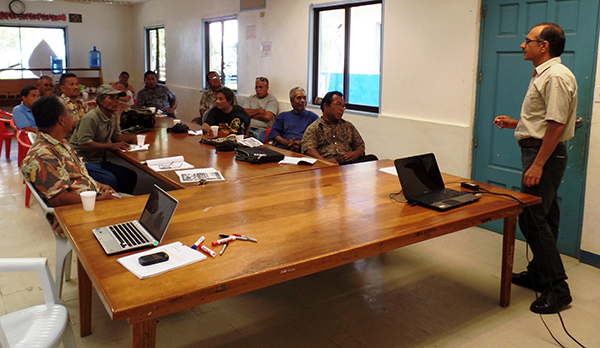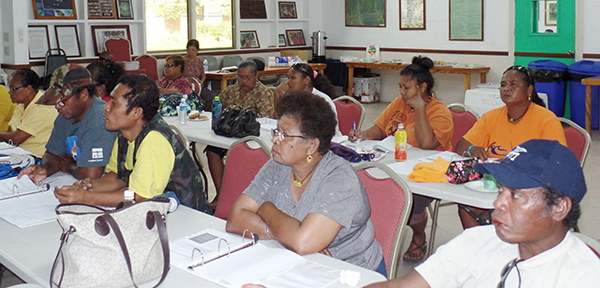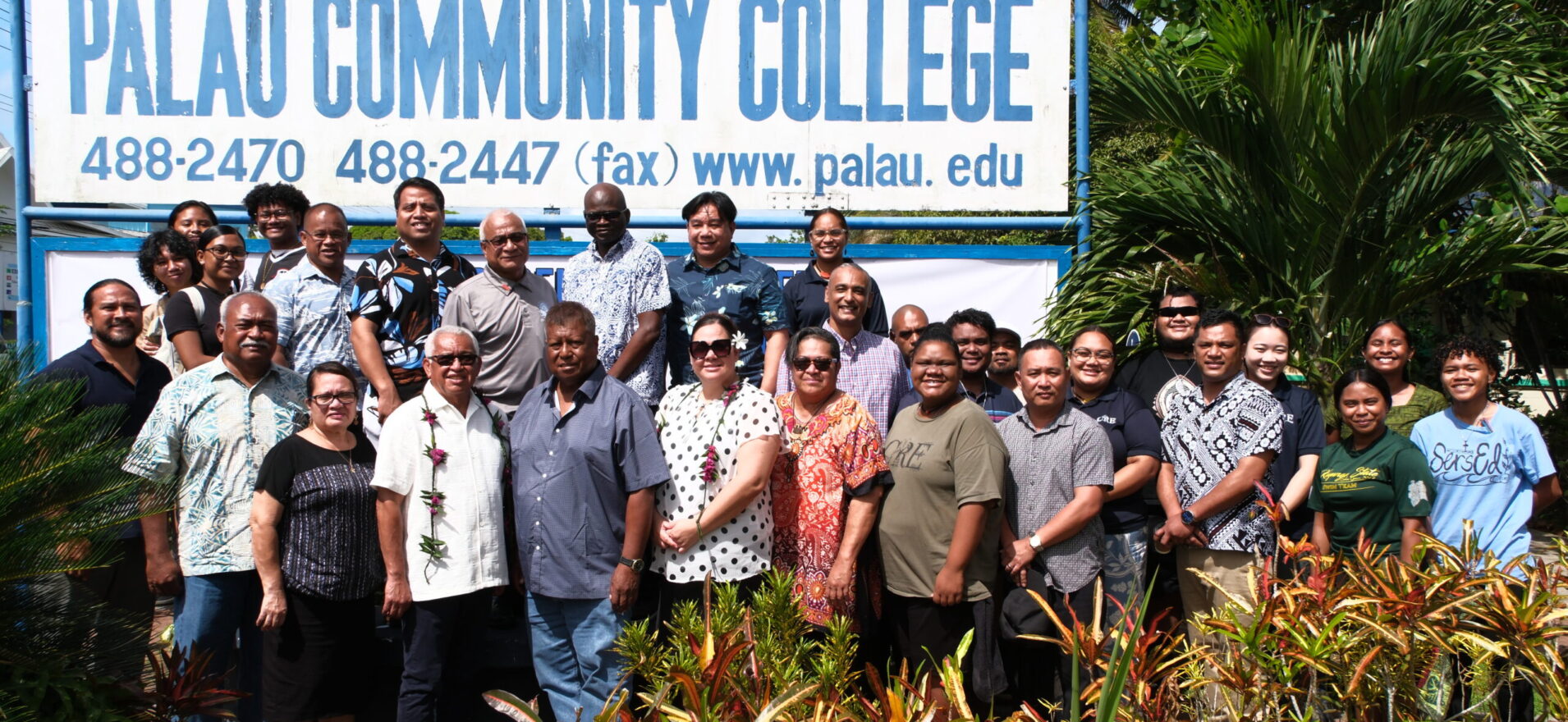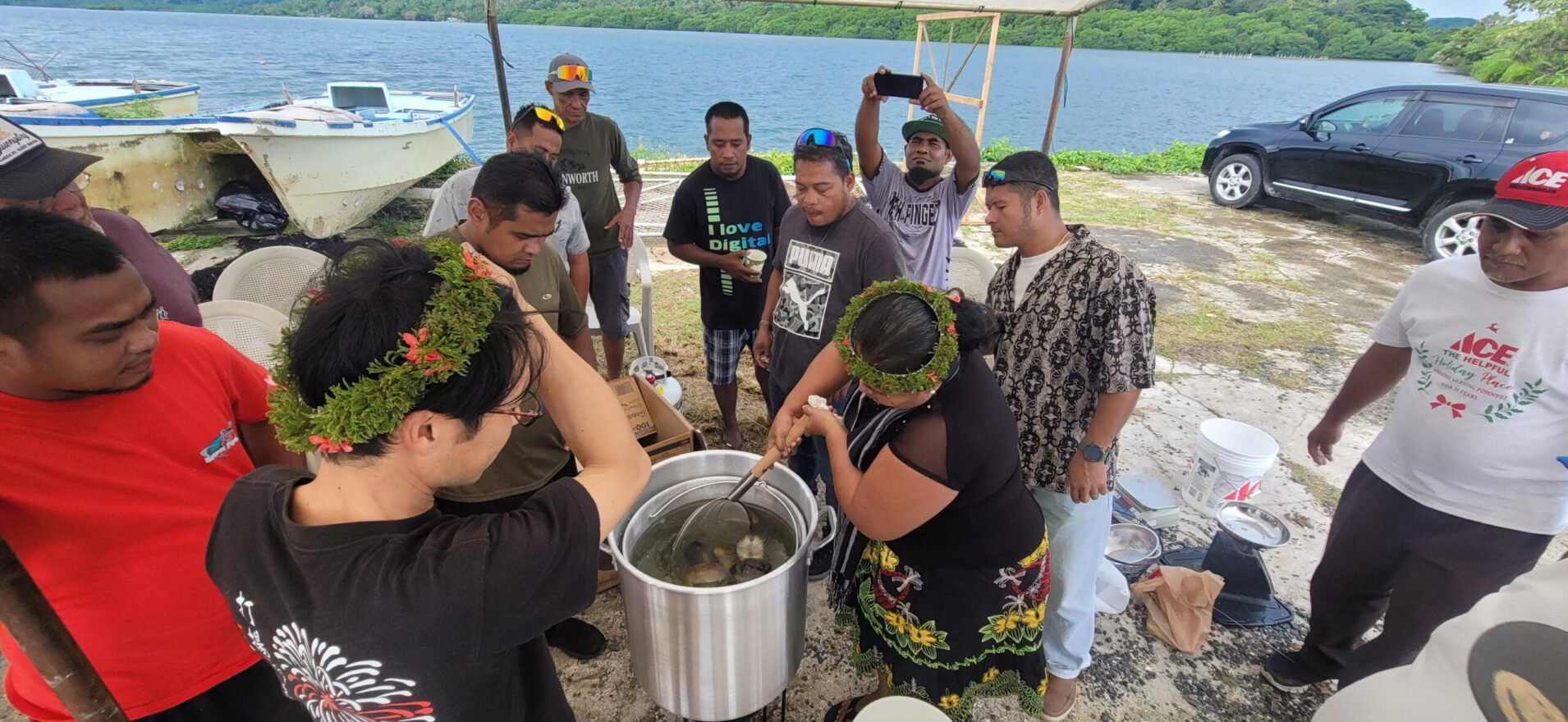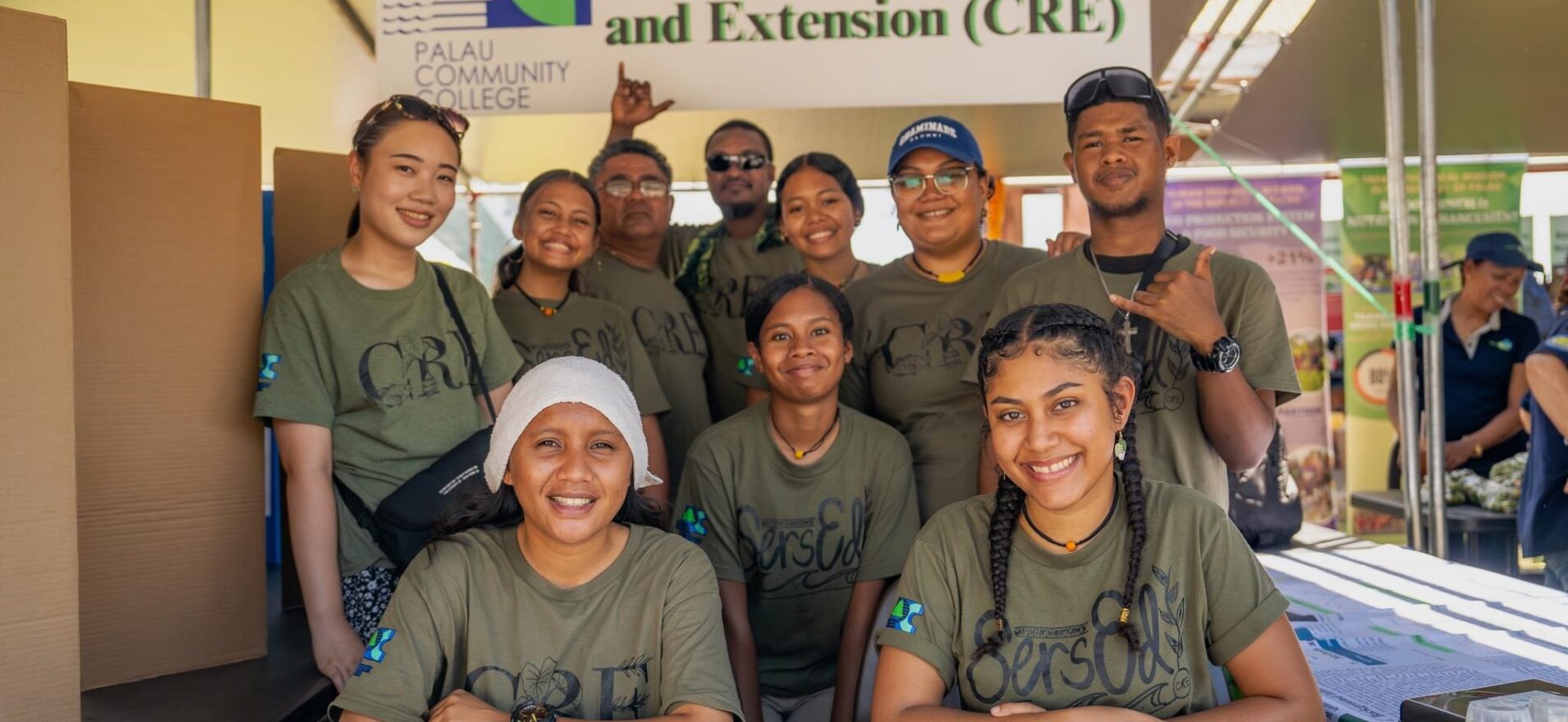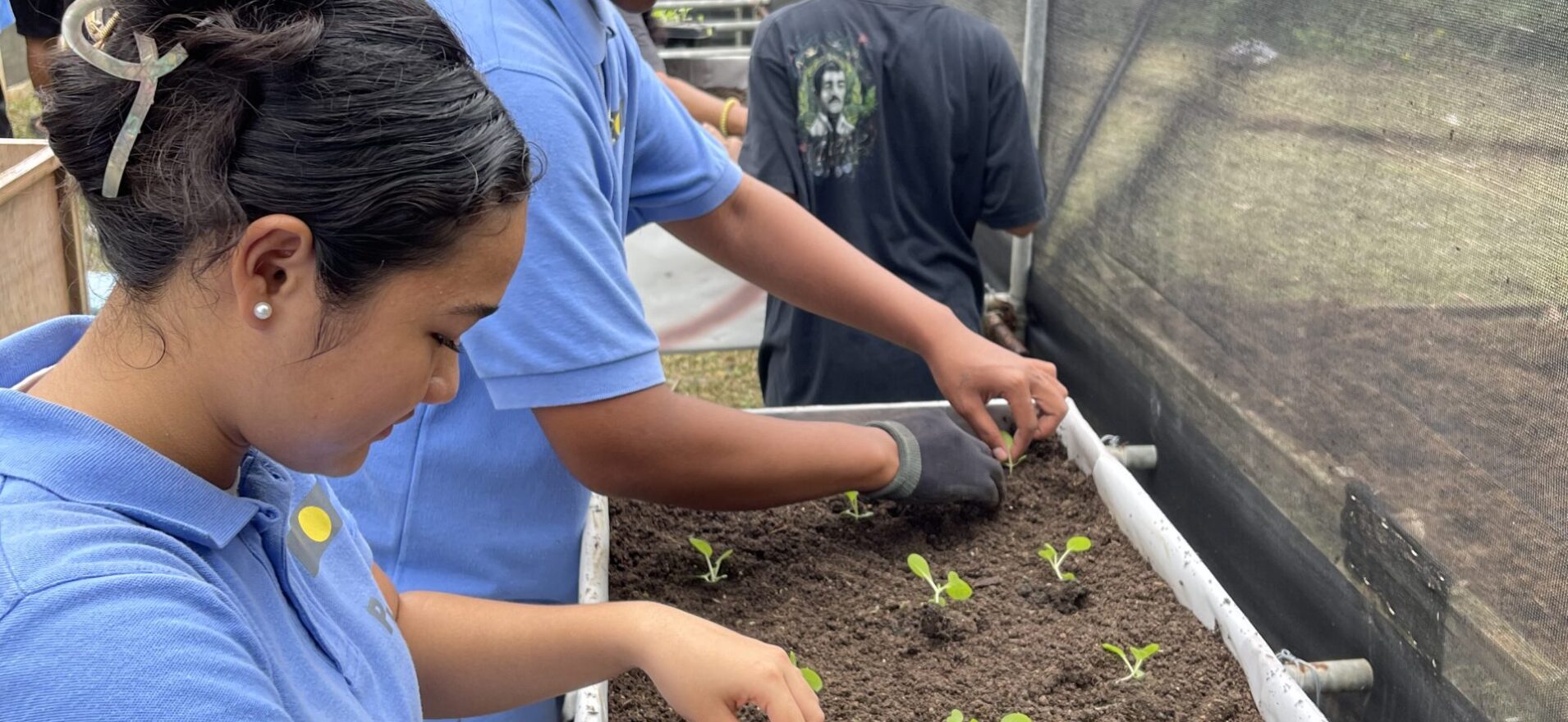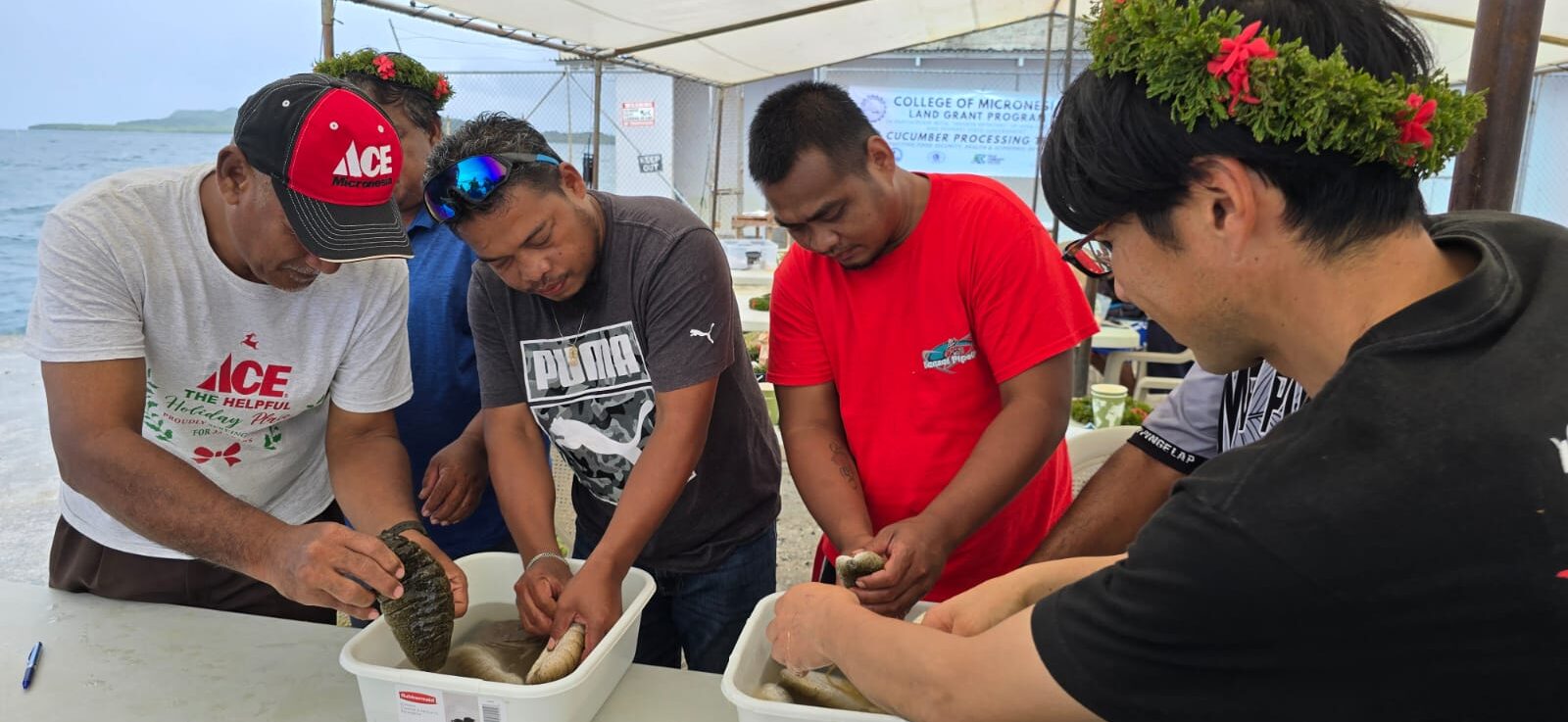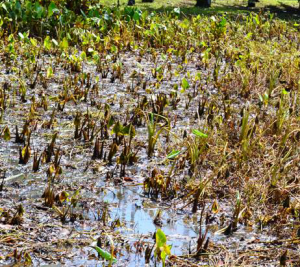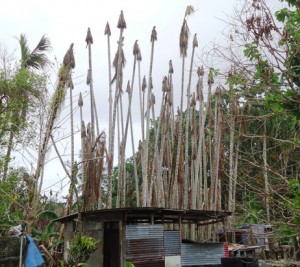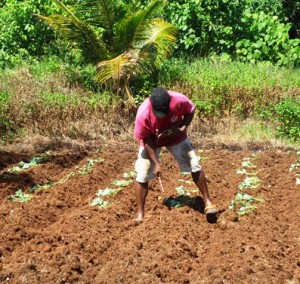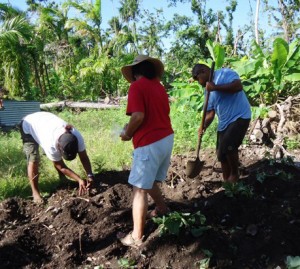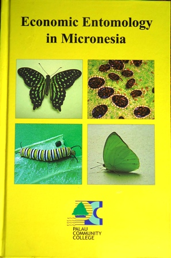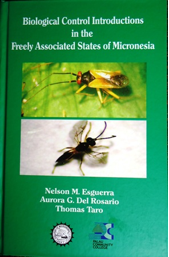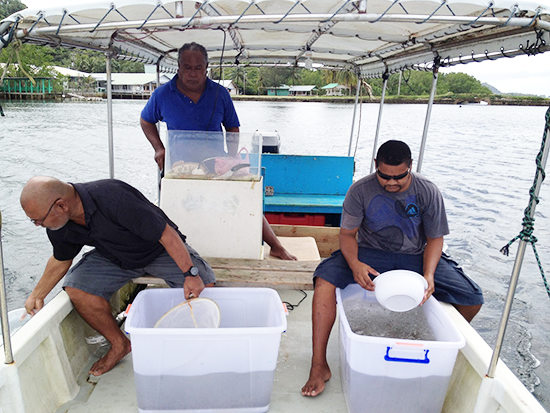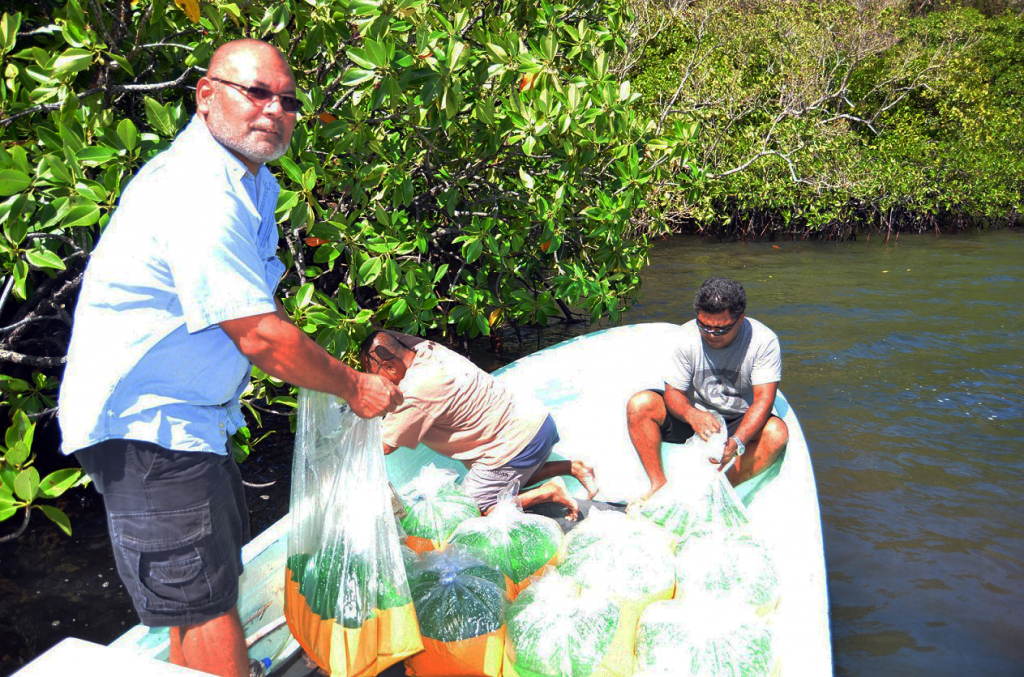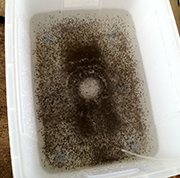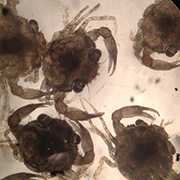YAP, FSM. Dr. Murukesan Krishnapillai, Researcher/Extension Specialist, Yap Agricultural Experiment Station
Two Researchers from the College of Micronesia-FSM Cooperative Research and Extension conducted a series of training workshops on ‘Climate-Smart Agriculture’ between May 3 and May 13 under the Professional Development Program of the Western Sustainable Agriculture Research and Education. Workshops were conducted at the College of Marshall Islands, Majuro, College of Micronesia-FSM at Chuuk Campus and at the Palau Community College. Purpose of these workshops was to educate and train extension agents, agriculture professionals and farmers in climate-smart agricultural practices. Altogether 51 participants (10 in Majuro, 14 in Chuuk and 25 in Palau) participants including extension agents, agriculture professionals, farmers and staff of various government agencies attended this workshop. The workshops were facilitated by Dr. Murukesan Krishnapillai (Researcher/Extension Specialist, Yap Campus) and Dr. Virendra Verma (Researcher/Extension Specialist, Kosrae Campus). The training workshops covered the following six topics: i) What is smallholder farming, ii) Climate change impacts that you can expect, iii) Climate change impacts on smallholder farming, iv) Improving soil fertility and farm productivity, v) Climate-smart adaptation strategies and, vi) Climate-smart agricultural adaptation strategies. Training sessions were supported by a training manual and several online brochures/training guides. Pre-and post-evaluation results show that participants gained knowledge and awareness on the topics discussed to serve the communities in a better way.
